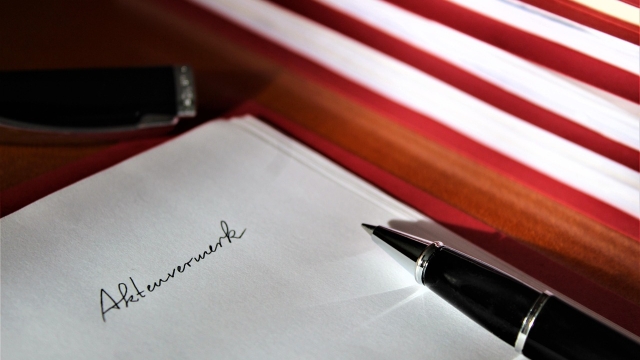Locked & Loaded: Exploring the Intriguing World of Firearms
Welcome to the fascinating world of firearms, where a rich tapestry of history, innovation, and controversy intertwine. Firearms, also known as guns, have long captivated the imagination of many, whether it be for self-defense, hunting, or simply understanding the mechanics of these powerful tools. In this article, we will embark on an exploration of firearms, delving into their evolution, different types, and the intricate processes involved in their purchase and sale. So, hold on tight as we unveil the intricacies of this intriguing world and journey into the realm of locked and loaded possibilities.
Understanding the Different Types of Firearms
In this section, we will delve into the fascinating world of firearms and explore their various types. From handguns to shotguns, each firearm serves a unique purpose and possesses distinct features.

Handguns:
Handguns, also known as pistols, are compact firearms primarily designed to be operated with one hand. They come in two main categories: revolvers and semi-automatic pistols. Revolvers have a rotating cylinder that holds the ammunition, while semi-automatic pistols use a magazine to store the bullets. Handguns provide versatility and are commonly used for personal defense and concealed carry.-
Rifles:
Rifles are long-barreled firearms that are designed for accuracy and range. They are often fired from the shoulder, providing stability and precision. Rifles can be categorized into various types such as bolt-action, semi-automatic, and lever-action. Bolt-action rifles require manual operation to load each round, while semi-automatic rifles automatically load the next round after each shot. Lever-action rifles, on the other hand, have a lever mechanism used to load and eject cartridges. -
Shotguns:
Shotguns are firearms that fire a cluster of small projectiles, called shot, instead of a single bullet. They are commonly used for hunting and recreational shooting activities, as well as home defense. Shotguns come in different forms, including pump-action, semi-automatic, and break-action. Pump-action shotguns require the user to manually operate a sliding mechanism to chamber rounds, while semi-automatic shotguns automatically load and fire the next round. Break-action shotguns are characterized by their hinged design, allowing easy access to the chamber for reloading.
Understanding the different types of firearms is essential for those interested in the world of firearms. Whether you are looking to buy or sell firearms, having knowledge about their variations and functionalities ensures informed decision-making. Stay tuned for the next section, where we will explore the factors to consider when buying firearms.
Exploring the Legalities of Buying and Selling Firearms
When it comes to buying and selling firearms, it is essential to navigate the legalities surrounding these transactions. Understanding and adhering to the laws and regulations in place is crucial for both buyers and sellers.
Firstly, it is important to note that the regulations and requirements around firearms vary from country to country, and even within different regions. It is essential to familiarize yourself with the specific laws applicable to your location before engaging in any buying or selling activities.
For buyers, one of the key legal considerations is the requirement for background checks. Many jurisdictions enforce background checks to ensure that firearms are not falling into the wrong hands. These checks typically include a review of criminal records, mental health history, and other relevant factors. It is crucial for buyers to comply with these checks to ensure they meet the necessary criteria to own a firearm legally.
On the other hand, sellers also have legal obligations when it comes to selling firearms. Some jurisdictions may require sellers to hold specific licenses or permits to engage in the trade. Additionally, sellers are often required to keep thorough records of all firearm transactions, including information about the buyer and details about the firearm itself. Adhering to these requirements helps maintain accountability and traceability within the firearms trade.
Furthermore, it is important for both buyers and sellers to be aware of any restrictions or limitations placed on certain types of firearms. Some jurisdictions have regulations regarding the sale and possession of firearms such as automatic weapons, large-capacity magazines, or firearms with specific features. Understanding these restricted items and complying with the corresponding regulations is crucial to avoid any legal consequences.
In conclusion, exploring the legalities of buying and selling firearms is a vital step in ensuring responsible and lawful participation in the firearms trade. Familiarizing oneself with the specific laws and regulations, conducting background checks, and adhering to record-keeping requirements are all essential aspects of engaging in this industry within the boundaries of the law.
Tips for a Safe and Successful Firearms Transaction
-
Conduct Background Checks: When buying or selling a firearm, it is essential to prioritize safety and legality. Always ensure that both parties involved go through the necessary background checks. This step helps prevent firearms from falling into the wrong hands and promotes responsible gun ownership.
-
Meet in a Safe Location: Choosing the right meeting place for a firearms transaction is crucial. It’s recommended to meet in a public location where there is a fair amount of foot traffic and security. Consider meeting at a local shooting range or a reputable gun store, as these environments prioritize safety and may provide added security measures.
-
Verify State and Local Laws: Before proceeding with a firearms transaction, it’s imperative to be aware of and comply with all applicable state and local laws. Research and understand the regulations governing gun sales in your area, including any necessary permits or licenses. This knowledge ensures that the transaction is conducted legally and avoids any potential legal consequences down the road.
Remember, preserving safety and adhering to proper protocols is paramount when engaging in firearm transactions. By following these tips, individuals can help maintain the integrity of the process and ensure responsible gun ownership in our communities.


